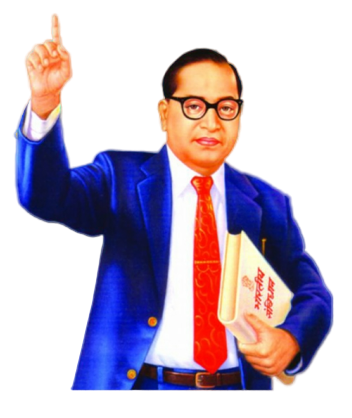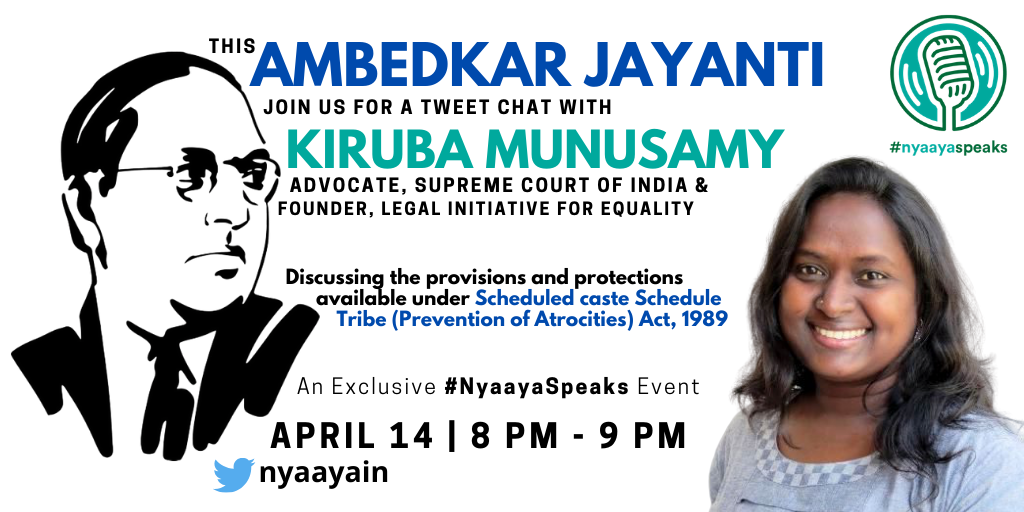Feb 14, 2022
Our Very First #NyaayaSpeaks
Nyaaya
In the midst of the covid outbreak and social distancing, almost everyone is glued to their screens — be it working from home or scrolling through social media. For some, it can be a vicious cycle jumping from work documents to Netflix to twitter and then back to work documents. If you are looking to break this cycle or any related monotonous schedule, you should check out our new series called #NyaayaSpeaks.
From this April, we are starting #NyaayaSpeaks, where once a month we will be conducting a series of special posts, tweet chats, live sessions and articles honouring a special day or an event from that particular month.
This month at #NyaayaSpeaks we are celebrating the life of Dr BR Ambedkar. April is often considered as dalit history month, owing to his birth anniversary on 14th April. Along with being the architect of our Constitution, he is revered for his fight against untouchability and towards the upliftment of the dalits. In his honour, this week we will be discussing the history of the anti-caste movement, the development of laws and policies owed to the efforts of Ambedkar and the protections available to those adversely affected by this disparate system.

If your history textbooks were anything like mine, you were taught about the caste system in India as being an episode of the past — something that went away after independence and the passing of the Constitution. It did not have any references about the severity or magnitude of this problem, or even the fact that it exists till date. However, caste discrimination in present times can be seen in many forms. It is seen in the practice of manual scavenging, in the prevalence of honour killings, mob lynching, harassment of dalit women and discrimination even on online spaces.
To address these problems, over the years the government has passed laws like Protection of Civil Rights Act, 1951, Prohibition of Employment as Manual Scavengers and their Rehabilitation Act, 2013 and the Scheduled Caste Scheduled Tribe (Prevention of Atrocities) Act 1989. While many of these laws may evidently be recent, the progress made so far in the terms of providing protections to the lower castes can only be credited to the efforts of Dr BR Ambedkar.
To know more about Ambedkar’s anti caste movement, the laws, protections and developments in different policies, tune in to our social media channels throughout this week and look for the hashtag #NyaayaSpeaks.
Facebook | Twitter | Instagram | YouTube
We are also having a twitter chat tomorrow, April 14th, 8 PM (Indian Standard Time, GMT +05:30) with Kiruba Munusamy where we will be discussing the Scheduled Caste Scheduled Tribe (Prevention of Atrocities) Act, 1989 and the role this law plays in protecting the rights of those marginalised by the caste system.

Kiruba Munusamy is an advocate practicing in the Supreme Court of India and the founder of Legal Initiative For Equality. She is a judicial activist striving for social justice and equality. She played a vital role in the landmark police appointment of transwomen case and has filed many Public Interest Litigations. Do join us if you have any questions on this subject.
If you like any of our #NyaayaSpeaks posts, or have related comments, questions or suggestions, do let us know. Your feedback will help us create better online events for you in the future.
Stay safe and have a great week!
Jai bheem!